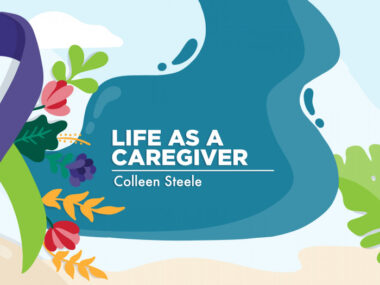What’s Left Behind When Moving From Pediatric to Adult Care
When patients grow older, they may lose a 'veil of gentleness' in their treatment
Written by |

When the technician leaves the room following my echocardiogram to ensure that all of the proper images have been collected, my mom and I pick up the game quickly. Looking at the mural that spans the wall across from us, we each count the number of cars, people in hard hats, and city dwellers walking a dog. We compare numbers, and if we disagree, the counting begins again.
This is just one of the many visceral memories that I carry from my time in pediatric care with pulmonary hypertension (PH). It comes to the forefront of my mind each time my mom and I sit in a white-walled clinic room of adult care, scrolling our phones as we wait for my provider to gently knock on the door.
The differences between pediatric and adult care can be striking, especially when the change comes quickly. Many are asked to make this adjustment at age 18, though the process will vary from patient to patient.
My transition came organically. At 18, I was not only shifting in age, but also in health. I transitioned not just from pediatrics to adult care, but also from PH care to the world of pre-transplant care. In a way, this exacerbated the trials that come with this transition, as the severity of my progressing illness was stacked on top of the changes, and things took a more serious tone than they might have otherwise.
As I continue on my healthcare journey today, there will always be things I covet from my time as a pediatric patient — things as simple as colorful artwork and walls or, more impactful, the overall sense of tenderness encapsulated in my care. It’s unfortunate when actions that can have such a tremendous impact on our mental and spiritual well-being are deprioritized as we age.
For example, I’ve frequently talked with other chronic illness warriors about the white walls that plague adult clinics. Having even one piece of inspiring artwork in those waiting moments could be so healing and memorable, yet such efforts are completely neglected in adult care in the U.S.
Of course, the greater difficulty of this transition is not in those waiting moments, but in the actual discussions that take place with providers once they’ve entered the room.
I don’t want to lump all pediatric care providers together as thoughtful and kind and all adult care providers together as brusque and negative, as that’s not the case. But I do believe, in general, that a certain cushion is dropped in the transition from one to the next. There’s a veil of gentleness over most things in pediatrics that society feels we no longer need as adults, which is simply not true.
In fact, I’d argue that my most vulnerable ages were from 18 to 22, as I still felt like a child and remained mostly dependent on my parents, but also had much greater knowledge of my health — which meant feeling ownership for the ramifications and decisions that came with growing sicker.
It was a supremely overwhelming time for me, especially in regards to my health. And while most of the care I received then was exceptional, certain difficult meetings had me wishing for the color, comfort, and protection that come with the pediatric world.
There’s no perfect solution to these inevitable changes we must go through as children of illness who outlive the pediatric system, which of course is a gift on its own. I’ve combated challenging moments by reminding myself that I’m the same person and same patient I’ve always been. Then and now, the endpoint of every meeting is going to be the perspective I choose to maintain, regardless of how the information was presented to me.
Even more so, I continue to surround myself with the comfortable support of my parents and family, who continue to sustain and nurture me far past the white walls of adult care that we’ve become familiar with.
Note: Pulmonary Hypertension News is strictly a news and information website about the disease. It does not provide medical advice, diagnosis, or treatment. This content is not intended to be a substitute for professional medical advice, diagnosis, or treatment. Always seek the advice of your physician or other qualified health provider with any questions you may have regarding a medical condition. Never disregard professional medical advice or delay in seeking it because of something you have read on this website. The opinions expressed in this column are not those of Pulmonary Hypertension News or its parent company, Bionews, and are intended to spark discussion about issues pertaining to pulmonary hypertension.





Leave a comment
Fill in the required fields to post. Your email address will not be published.